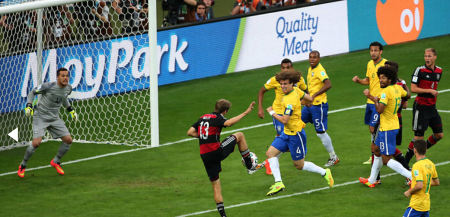Certain subjects defy logic. Love is one of them—if you can rationalize your love for someone (not a blood relative, of course), then you’re not in love. But love is an odd word in English: first off, it’s both noun and verb, whereas in Latin languages two different words exist; secondly, it’s used in a much more banal way, particularly in the U.S.
I love this dress, I love my boyfriend, I love pizza, I love baseball, weddings, or tattoos. Somewhere, the verb lost its high ground—I mean, who ever wept for unrequited pizza?
Love gains meaning through scarcity, and for me the words I love you are almost sacred. Which is why the verb Amar in Portuguese, distinct from the noun Amor, is so special.
Amor é fogo que arde sem se ver
É ferida que dói, e não se sente
É um contentamento descontente
É dor que desatina sem doer
Thus begins one of the best known sonnets by Luiz de Camões, a poet who sang the times of The India Road. Unfortunately Google Translate gets a D+ for effort, so here’s my take.
Love burns a fire you cannot see
A biting wound you cannot feel
A happiness which lives concealed
A pain that thrives but lets you be
Poetry isn’t my strong suit, although I did include one poem in The India Road, both in the English and Portuguese books—more of a limerick, but I had fun writing it. What I would have liked to present you with is Sir Richard Burton’s version of the ‘Lyricks of Camoens’, which he ‘Englished.’
But the internet said no.
For things other than the person who occupies your heart, should you be that fortunate, there are words such as gostar (like) or adorar (adore). So I was amazed to see the McDonalds ‘I’m lovin it’ slogan rendered in Brazilian soccer stadiums as ‘Amo muito tudo isso.’ You really can’t use the verb Amar, and particularly Amar muito, when discussing minced meat.

Brazil becomes prime meat for the Germans, who defeated them 7-1. The ad in the back is er… unfortunate.
Which, if you excuse the segway, was precisely Brazil’s misfortune last Tuesday, when the soccer game that was to open the last door to the hexa, its sixth World Cup trophy, turned into a hex of the worst variety.
Soccer is such a potent drug in Brazil that many see this as a swansong for Dilma, the current president. Her term in office has seen increasingly growing unrest, as Brazil’s economy suffers.
One man’s meat is another man’s poison, and all this kicked-off with the exodus of cheap money from the U.S., which abruptly began to leave the BRICS (Brazil, Russia, India, China, and South Africa). Why did it go there in the first place? Ah, back to the law of unintended consequences.
The U.S. decided to stimulate growth in the national economy, paraplegic after the sub-prime crisis, the fall of Lehman brothers and the near-collapse of the American auto industry. The stimulus largely consisted of an electronic version of printing money.
Perversely, when that money got to the banks, it was lent to developing economies, because the rate of return on capital is so much higher. Similar things happened in the U.K. and E.U. as a whole. This didn’t do an awful lot to reduce unemployment in the countries doing the printing.
Normally, if a cash injection occurs into an economy, prices jump—the hyperinflation that strikes terror into the hearts of the Germans, mindful of the collapse of the Reichsmark during the Weimar republic, a little over a century ago.
But in the case of the recent world print run (yup, they’re all at it), quantitative easing (QE) didn’t spike inflation. In fact in Southern Europe, price contraction due to austerity has brought various countries to the edge of deflation.
What’s wrong with that? Well, inventory decreases in value, completely eroding business and triggering large-scale bankruptcy.
Now that QE is er… easing, for which there is a wonderful non-speak term called tapering, banks are pulling their money out of BRICS, and putting it into less risky, lower-return products—none other than Southern European sovereign bonds.
So Dilma’s economic drama, in a country that hosts the Olympics in two years, is the joy of Portugal and Spain. Paraphrasing Mel Brooks, springtime for Italy and Portugal, winter for Russia and India.
The upshot of all this nonsense is that politicians in Southern Europe are jumping around proclaiming the wisdom of their policies, supported by the Germans telling everyone austerity works, when it’s patently obvious that this is just one of the less subtle consequences of globalization.
One of these days, the excess of buying power and general profligacy supported by nothing will provide us with an economic collapse that will make Weimar look like a child’s scraped knee.
Meantime, finance, like soccer, is nothing but a zero sum game. Every time someone laughs, someone cries.

Atmos Fear and The India Road. Quick links for smartphones.
Leave a comment